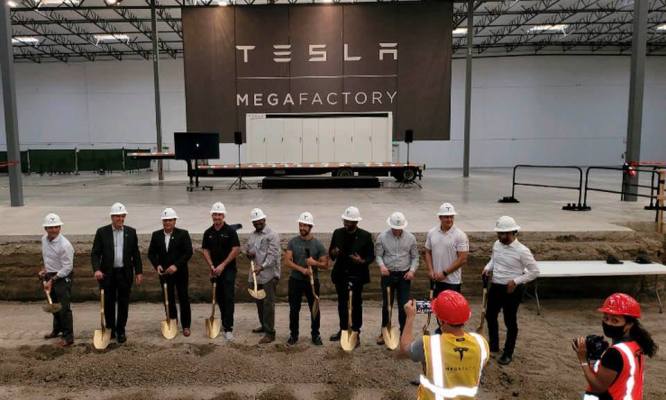Tesla broke ground on its “Megafactory,” a new production facility in California, so christened because it will produce the company’s large-scale battery system Megapack.
News of the previously unannounced factory was confirmed by the Lathrop Mayor Sonny Dhaliwal in a Facebook post that was deleted and re-posted. “We are proud to be the home of the Megafactory, Tesla’s most recent expansion here,” he said. “The future of green energy will be produced right here in our community.”
The factory, in the small northern California city of Lathrop, is near Tesla’s automotive plant in Fremont. Lathrop is also home to Tesla’s 870,000-square-foot distribution center.
Megapacks, as well as Tesla’s other energy storage products, were being manufactured at the electric automaker’s so-called “Gigafactory” in Sparks, Nevada. This is the first facility dedicated to the Megapack, though it’s unclear if production of Tesla’s other storage products — which include Powerwall and Powerpacks — will shift to the new factory.
The new factory is a positive signal for the automaker’s growing Energy division. As opposed to the Powerwall, which is a home consumer battery product, the Megapack is meant for utility-scale energy storage. Utilities building solar and wind farms are increasingly pairing these with large batteries to store excess energy to discharge to the grid later. Just last week, the Arizona electric utility Salt River Project brought online a 100 megawatt-hour Megapack project.
In a second-quarter earnings call in June, CEO Elon Musk confirmed that there was “significant unmet demand” for these storage products, adding that the Megapack was “basically sold out through next year.” He also estimated demand for Powerwall to be in excess of 1 million units per year.
Much of the bottleneck isn’t merely due to production capacity — Musk also told investors that cell supply and the global semiconductor shortage were creating production ceilings.
“We use a lot of the same chips in the Powerwall as you do in a car, so it’s like, which one do want to make?” he said. “Cars or Powerwalls? So we need to make cars, so that will — Powerwall production has been reduced.”
The chip shortage, however, seems to show no signs of abating; in fact, the White House on Thursday will be hosting its second summit with semiconductor manufacturers and purchasers to address the ongoing effects on the technology and auto industries.
